Curious Questions
-

Where to find the world's best club sandwich — and the story of this triple-layered paean to poolside delight
The club sandwich, arguably the most famous of all sarnies, is a poolside staple, but its origins are tricky to trace, says Tom Parker Bowles.
By Tom Parker-Bowles Published
-
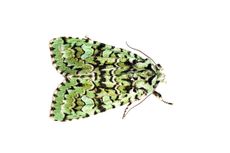
From the 'gatekeeper' to the 'Scotch argus', where did butterflies and moths get their strange names?
Members of the Society of Aurelians were artists, designers, silk traders and men-of-letters. So what inspired them to coin the many names of butterflies and moths we use today? The answer, reveals Peter Marren is beauty.
By Country Life Published
-
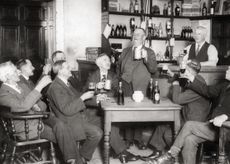
Do you know your apple-catchers from your tittamatorter? Take a crash course in the UK's local languages
With experts warning that regional accents could disappear within decades, our sometimes quaint and, often, bizarre dialect words are becoming ever-more precious.
By Victoria Marston Published
-

Curious Questions: Was music's famous 'Lady of the Nightingales' nothing more than a hoaxer?
Beatrice Harrison, aka ‘The Lady of the Nightingales’, charmed King and country with her garden duets alongside the nightingales singing in a Surrey garden. One hundred years later, Julian Lloyd Webber examines whether her performances were fact or fiction.
By Julian Lloyd Webber Published
-

Curious Questions: Who wrote the Happy Birthday song?
There are few things less pleasurable than a tuneless public rendition of Happy Birthday To You, says Rob Crossan, a century after the little ditty came into being
By Rob Crossan Published
-

Curious Questions: Who was the first person to take a driving test?
For years, all you need to drive a car was to jump behind the wheel — but that all changed. Martin Fone traces the history of the driving test.
By Martin Fone Published
-

Curious Questions: Why does our tax year start on April 6th?
The tax-year calendar is not as arbitrary as it seems, with a history that dates back to the ancient Roman and is connected to major calendar reforms across Europe.
By Martin Fone Published
-

Why do we get so many April showers?
It's the time of year when a torrential downpour can come and go in minutes — or drench one side of the street while leaving the other side dry. It's all to the good for growing, says Lia Leendertz as she takes a look at the weather of April.
By Lia Leendertz Published
-
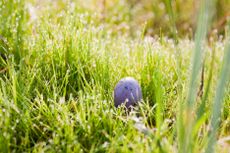
Curious Questions: Why does Easter move dates every year?
Phoebe Bath researches why exactly Easter is a called a 'moveable feast'.
By Country Life Published
-
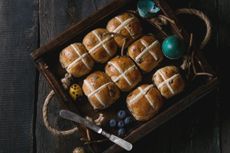
Curious Questions: Why do we eat hot cross buns at Easter?
Annunciata Elwes traces the curious history of the hot cross bun in Britain.
By Annunciata Elwes Published
-

Who was the original Jack Russell who gave his name to one of Britain's favourite dog breeds?
Kate Green takes a look at the the legacy of Revd John Russell, the man who gave his name to the Jack Russell and Parson Russell terriers.
By Kate Green Published
-

Curious Questions: The kiwi fruit is from China, and is China's national fruit — so how did it get its New Zealand-inspired name?
Martin Fone peels the layers back on the strange tale of how the kiwi fruit got its name.
By Martin Fone Published
-

Curious Questions: When — and why — did we stop wearing hats?
The hat was once as essential for leaving the house as a pair of trousers, but the sight of a dapper gent sporting one is now all too rare, laments John F. Mueller, while Toby Keel takes a look at the reasons we stopped wearing them.
By John F. Mueller Published
-

Curious Questions: Why do barristers and judges wear wigs?
Like marmalade on toast, saying sorry and the Shipping Forecast, there are few things more typically British than the courtroom wig. Agnes Stamp explains why our barristers and judges wear them.
By Agnes Stamp Published
-

Curious Questions: What really happened to the Flying Dutchman?
Tales of phantom ships are as old as time itself, but the story of the Flying Dutchman has haunted sailors for generations.
By Martin Fone Published
-

What it's like to live and work in a National Park
Cumbrian farmer Douglas Chalmers weighs the pros and cons of living in a national park.
By Douglas Chalmers Published
-

Curious Questions: Why does the weather keep getting colder even when the days start getting longer?
The coldest months of the year in Britain are always January and February — despite the fact that we're getting more sunshine and daylight than we do during December. Martin Fone investigates why the weather gets colder even though the days are getting longer.
By Martin Fone Published
-

Why does BBC Radio 4 broadcast 'the pips' at the top of the hour?
The Greenwich Time Signal has been an ubiquitous part of BBC Radio for a century, but few know what it really is and where it came from
By Rob Crossan Published
-
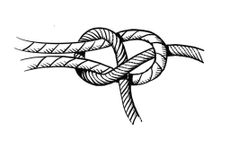
How to tie the only knots you'll ever need
The 'Surrey Six' is a collection of ways to tie rope that, for most people, are the only six knots you'll ever need. Agnes Stamp tries her hand at tying them, and looks in to the lore of knot tying.
By Agnes Stamp Published
-
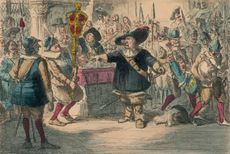
When England cancelled Christmas
No feasting. No drinking. No celebrations. Ian Morton explores what the festive period was like when Oliver Cromwell’s Christmas clampdown gripped the nation.
By Ian Morton Published
-
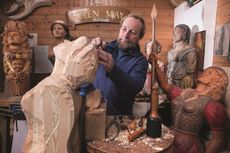
Curious Questions: Why do ships have figureheads?
Always adorned with eyes, often female and sometimes in a compromising pose, carved figureheads were cherished by their crews. But why? Harry Pearson takes a look.
By Harry Pearson Published


